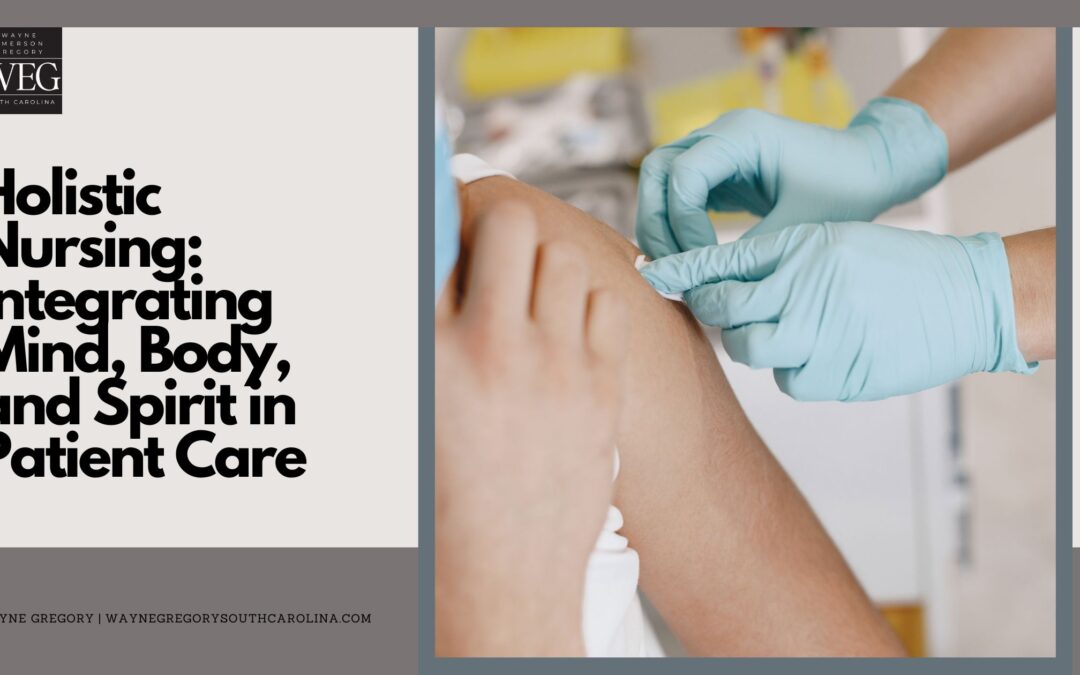A holistic approach to nursing is gaining prominence, recognizing that an individual’s well-being is intricately connected to their mind, body, and spirit. Holistic nursing is centered on treating patients as whole beings, addressing their physical ailments, and considering health’s emotional, mental, and spiritual dimensions. In this blog, we will explore the principles of holistic nursing and how it integrates mind, body, and spirit in patient care.
Understanding Holistic Nursing:
Holistic nursing is founded on the belief that health is a dynamic state influenced by the interconnectedness of various aspects of a person’s life. This approach acknowledges that illness or distress in one dimension can impact the overall well-being of an individual. Holistic nurses aim to facilitate healing by recognizing and addressing health’s physical, emotional, mental, and spiritual components.
Key Principles of Holistic Nursing:
Whole-Person Care:
Holistic nursing emphasizes treating the whole person rather than just managing symptoms. Nurses consider the patient’s physical health and emotional, mental, and spiritual needs.
Individualized Care Plans:
Holistic nurses recognize that each person is unique and has diverse health needs. Consequently, they create individualized care plans considering the patient’s preferences, values, and belief systems.
Mind-Body Connection:
Understanding the intricate connection between the mind and body is crucial in holistic nursing. Stress, emotions, and mental states can profoundly impact physical health. Holistic nurses integrate practices like relaxation techniques, mindfulness, and guided imagery to support the mind-body connection.
Promotion of Preventive Care:
Holistic nursing places a strong emphasis on preventive care. Nurses work with patients to identify risk factors, encourage healthy lifestyle choices, and promote wellness to prevent future health issues.
Collaboration with Complementary Therapies:
Holistic nurses often collaborate with practitioners of complementary and alternative therapies, such as acupuncture, massage, yoga, and herbal medicine, to enhance traditional healthcare practices. This integrative approach aims to address a broader range of patient needs.
Integrating Spirituality in Patient Care:
Respecting Spiritual Beliefs:
Holistic nurses acknowledge and respect the diverse spiritual beliefs of their patients. This may involve incorporating prayer, meditation, or other spiritual practices into the care plan based on the patient’s preferences.
Creating Sacred Spaces:
Recognizing the importance of a tranquil environment, holistic nurses create sacred spaces within healthcare settings. These spaces offer a peaceful retreat where patients and their families can find solace, reflect, or engage in spiritual practices.
Facilitating Spiritual Dialogue:
Holistic nurses engage in open and empathetic dialogue with patients about their spiritual needs and beliefs. This communication fosters trust, understanding, and a deeper connection between the nurse and the patient.
Benefits of Holistic Nursing:
Improved Patient Outcomes:
Holistic nursing has been associated with improved patient outcomes. By addressing the multiple dimensions of health, patients may experience enhanced physical, emotional, and spiritual well-being.
Increased Patient Satisfaction:
Patients often appreciate the individualized and compassionate care provided by holistic nurses. This personalized approach can increase patient satisfaction and a more positive healthcare experience.
Enhanced Nurse-Patient Relationships:
Holistic nursing emphasizes building solid relationships between nurses and patients. This connection fosters trust, communication, and collaboration in achieving optimal health outcomes.
Conclusion:
Holistic nursing represents a compassionate and comprehensive approach to patient care that goes beyond treating symptoms. By recognizing and addressing the interconnected aspects of an individual’s well-being — mind, body, and spirit — holistic nurses contribute to a more profound and transformative healing experience. As healthcare continues to evolve, the principles of holistic nursing offer a valuable model for creating patient-centered care that nurtures the whole person on their journey to health and wellness.

